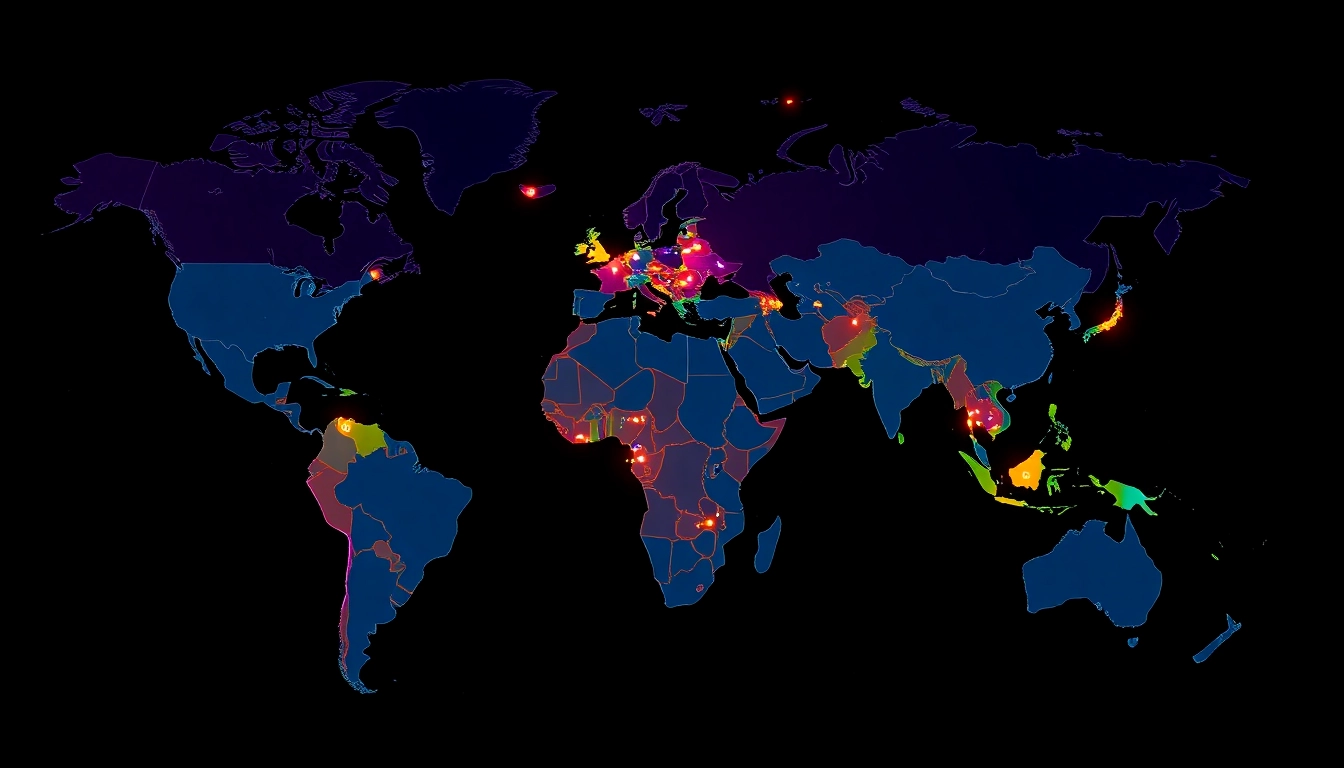The global landscape of cryptocurrency regulation continues to evolve at a rapid pace, reflecting the shifting attitudes of governments, financial institutions, and investors toward digital assets. As nations worldwide grapple with integrating crypto into their financial systems, a key focus for investors and entrepreneurs is locating crypto-friendly countries. These jurisdictions offer conducive legal frameworks, favorable tax policies, and supportive business environments that can significantly enhance the potential for growth and profitability in the crypto sector. This comprehensive guide explores the criteria that define crypto-friendly countries, highlights the top destinations in 2025, and provides strategic advice for selecting the best country to align with your investment or business goals.
Understanding the Criteria Behind Crypto-Friendly Countries
Legal Frameworks and Regulations
Legal frameworks form the backbone of crypto acceptance in any jurisdiction. Crypto-friendly countries typically exhibit clear, progressive, and stable regulations that promote innovation while safeguarding investor interests. These regulations include categories such as legal recognition of cryptocurrencies, licensing regimes for exchanges and blockchain businesses, and protections against fraud and money laundering. Countries like Switzerland and Estonia have established comprehensive legal codes that explicitly define cryptocurrencies’ legal status, facilitating easier incorporation of crypto enterprises.
Moreover, regulatory clarity reduces uncertainty for investors and reduces the risk of sudden policy reversals. Governments adopting a light-touch regulatory approach or providing clear licensing pathways tend to attract more crypto startups and institutional investors, further strengthening their crypto ecosystems.
Tax Policies and Incentives for Crypto Investors
Tax policies are critical in shaping a country’s crypto landscape. Countries that offer tax incentives, such as zero capital gains tax, exemptions on crypto holdings, or favorable income tax rates for miners and traders, are highly attractive for crypto enthusiasts. For instance, nations like Portugal and Singapore are renowned for their minimal or nonexistent taxes on crypto profits, making them ideal for investors aiming to maximize returns.
Conversely, jurisdictions with high taxes or complex reporting obligations can deter active participation. Therefore, assessing a country’s tax regime—along with available incentives—should be a primary consideration when evaluating its crypto-friendliness.
Business Environment and Crypto Adoption Rates
An enabling business environment extends beyond regulation and taxation. It includes the quality of infrastructure, access to banking and financial services, technological innovation, and the overall ease of doing business. Countries with high crypto adoption rates—often driven by active communities, supportive government initiatives, and robust financial systems—tend to be more supportive of new projects.
For example, Singapore’s progressive approach coupled with its strategic location and developed financial infrastructure makes it a hub for blockchain startups. Similarly, Switzerland’s Crypto Valley in Zug benefits from a proactive regulatory stance and a rich ecosystem of blockchain firms, investors, and technologists.
List of the Most Crypto-Friendly Countries in 2025
European Leaders in Crypto Regulation
Europe remains a stronghold for crypto regulation, primarily due to initiatives like the EU’s Markets in Crypto-Assets (MiCA) framework, which aims to harmonize regulations across member states. Countries such as Switzerland and Portugal exemplify Europe’s crypto leadership:
- Switzerland: Renowned for its Crypto Valley, Zug hosts a thriving blockchain ecosystem supported by clear regulations and favorable banking relations.
- Portugal: Offers a tax-free environment for personal crypto gains, attracting investors and digital nomads alike.
Asia and Middle East: Emerging Crypto Havens
Asia and the Middle East are rapidly becoming premier destinations due to their forward-looking regulations and growing markets:
- Singapore: Known globally for its supportive regulatory environment, top-tier financial infrastructure, and strategic position.
- United Arab Emirates: With Dubai’s proactive blockchain policies and free zones dedicated to crypto businesses, the UAE offers a compelling environment.
Americas with Progressive Crypto Policies
In the Americas, countries like El Salvador have taken bold steps towards adopting cryptocurrencies as legal tender, while others like the US and Canada maintain progressive regulatory frameworks that foster innovation:
- El Salvador: The first country to embrace Bitcoin as legal tender, creating a unique digital economy.
- Canada: Maintains a balanced regulatory stance, with supportive policies and well-established financial markets.
How to Choose the Best Crypto-Friendly Country for Your Needs
Assessing Tax Benefits and Legal Stability
Choosing the ideal country involves evaluating both fiscal advantages and legal certainty. Countries with zero or low crypto taxes, combined with stable political environments, reduce risks associated with regulatory overhauls. Expert advice and detailed legal reviews are essential to avoid pitfalls related to currency controls, reporting obligations, or future policy shifts.
Evaluating Infrastructure and Financial Services
Robust banking relationships, reliable internet connectivity, and access to advanced financial services are necessary for seamless crypto operations. Countries with dedicated crypto banking channels, institutional support, and modern fintech infrastructure facilitate smoother onboarding and transaction processing.
Considering Quality of Life and Remote Work Policies
For long-term residence or remote work, factors such as quality of life, cost of living, safety, and community support matter significantly. Crypto communities in countries like Portugal and Estonia often provide co-working spaces, networking opportunities, and a welcoming culture that enhance the overall experience.
Challenges and Risks in Moving to Crypto-Friendly Countries
Legal Ambiguities and Policy Changes
Despite positive impressions, legal frameworks can change quickly. Governments may retroactively alter regulations, impose new taxes, or restrict certain activities. Staying informed and maintaining compliance is vital to protect investments and operations.
Tax Obligations and Compliance
Failing to adhere to local tax laws can result in penalties or legal issues. Understanding reporting requirements and leveraging professional advice can mitigate risks. Some countries, despite favorable laws, still require strict documentation of crypto activities.
Economic Stability and Market Volatility
Political and economic stability influence crypto markets significantly. Investing in countries with volatile economies may expose assets to currency devaluation or sudden policy shifts. Balancing risk and opportunity requires thorough due diligence.
Strategies for Navigating Crypto Regulations Globally
Legal Due Diligence and Professional Advice
Engaging local legal experts and financial advisors provides tailored insights into regulations and compliance. They can assist in establishing proper structures, understanding licensing requirements, and optimizing tax strategies.
Building a Diversified Crypto Portfolio Across Borders
Distributing assets across multiple jurisdictions reduces exposure to country-specific risks and enhances security. Exchange and store assets carefully, considering local security standards and international regulations.
Staying Updated with Regulatory Changes
Continuous monitoring of legal and regulatory developments through trusted sources, industry news, and memberships in professional networks ensures timely adaptation to changes and ongoing compliance.



